Moreover, the recipe evolves over time, according to trends and according to cheese tastes. Nowadays, the ferments used to make most cheeses are controlled by competent federal offices (you have to believe it since that's what they call themselves!), which has essentially standardized tastes and lowered the character of cheeses.
My parents made fondue moitié-moitié (half-half), with half Emmental (called swiss cheese in America, the one with the holes), half Gruyere, as for me, after lots of experimenting, I came up with a mix of 50% Gruyere and 50% Vacherin Fribourgeois. It is interesting to note that this is also the recipe most often encountered with fondues afficionados. I suggest for your first fondues to follow my advice, but I certainly invite you to try other versions after that.
Gruyere
There are different kinds of Gruyeres: mild, half-salt and salty (these are mostly names as the salty one is not all that salty). In each of these categories, the Gruyere can be young, or aged to different degrees (which gives it a more pronounced taste). Finally one can find "alpages" Gruyeres (mountain Gruyeres) which are often better, probably due to the artisanal way they are made.
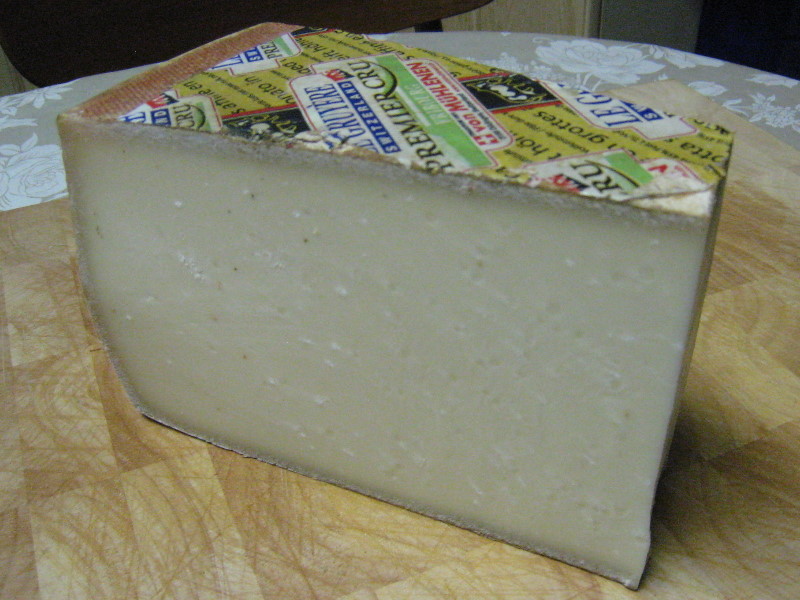
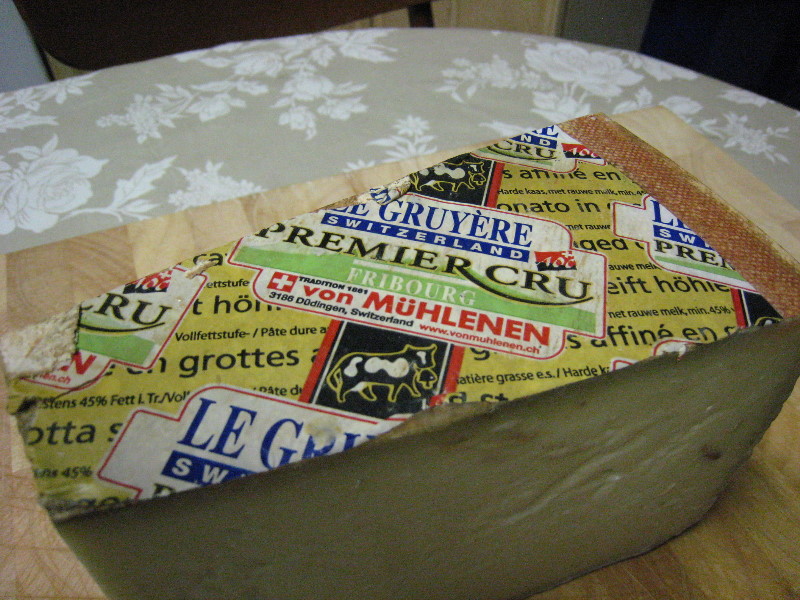
Vacherin Fribourgeois (Vacherin from the Fribourg region)
Again there are different varieties of Vacherin Fribourgeois, with more or less pronounced taste, according to their degree of maturation.
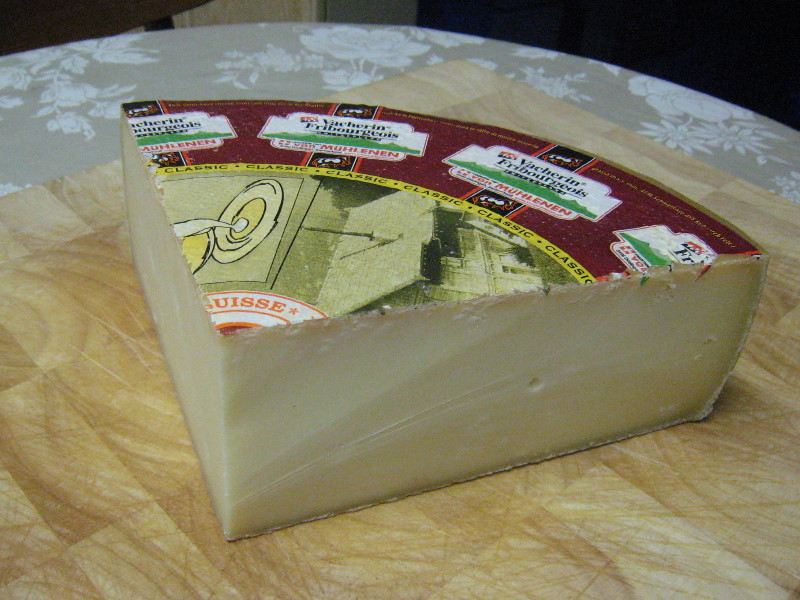
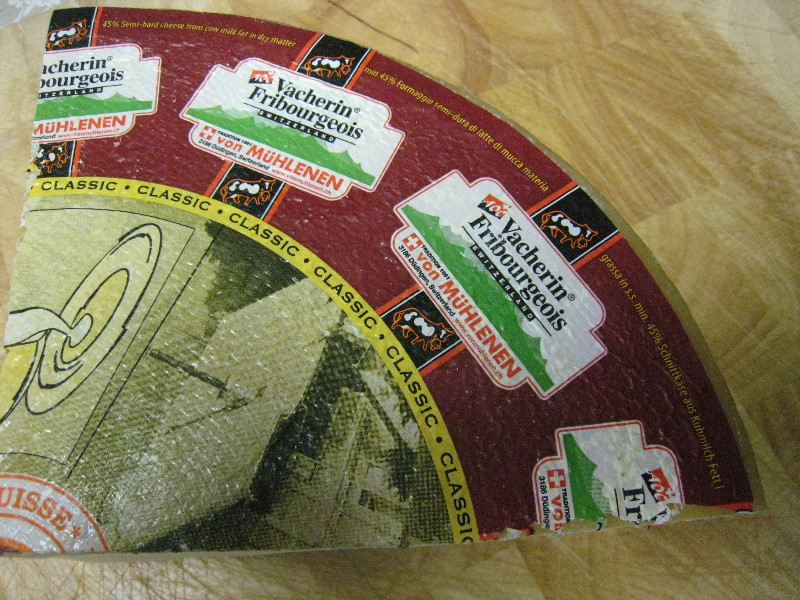
Ready mixes
Cheese stores sell cheese mixes, grated, ready for fondue. Most of these mixes not only have the cheese but also the required quantity of corn starch (see previous page - The starch).
I tried many such mixes, and they usually result in fondues between acceptable and good, but in some cases as good if not better than fondues made with cheeses selected from good retail places. See Evaluation of ready made cheese mixes.
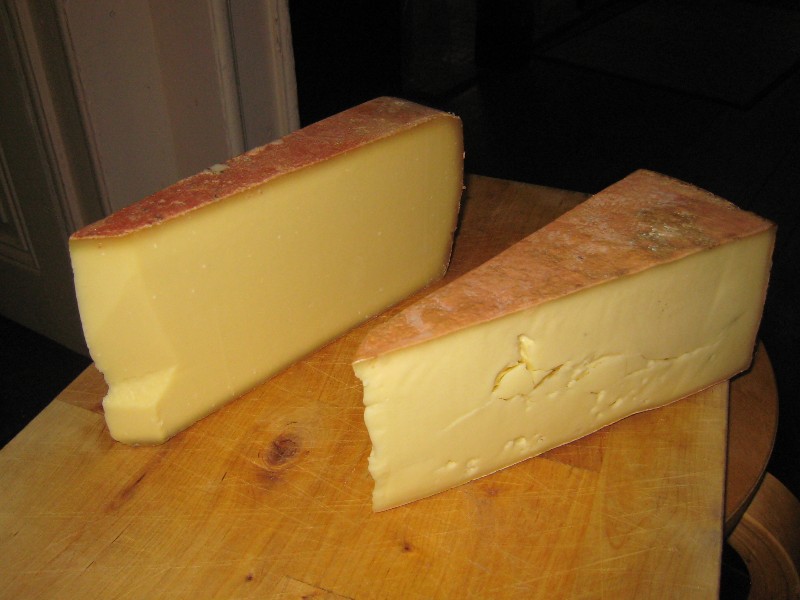
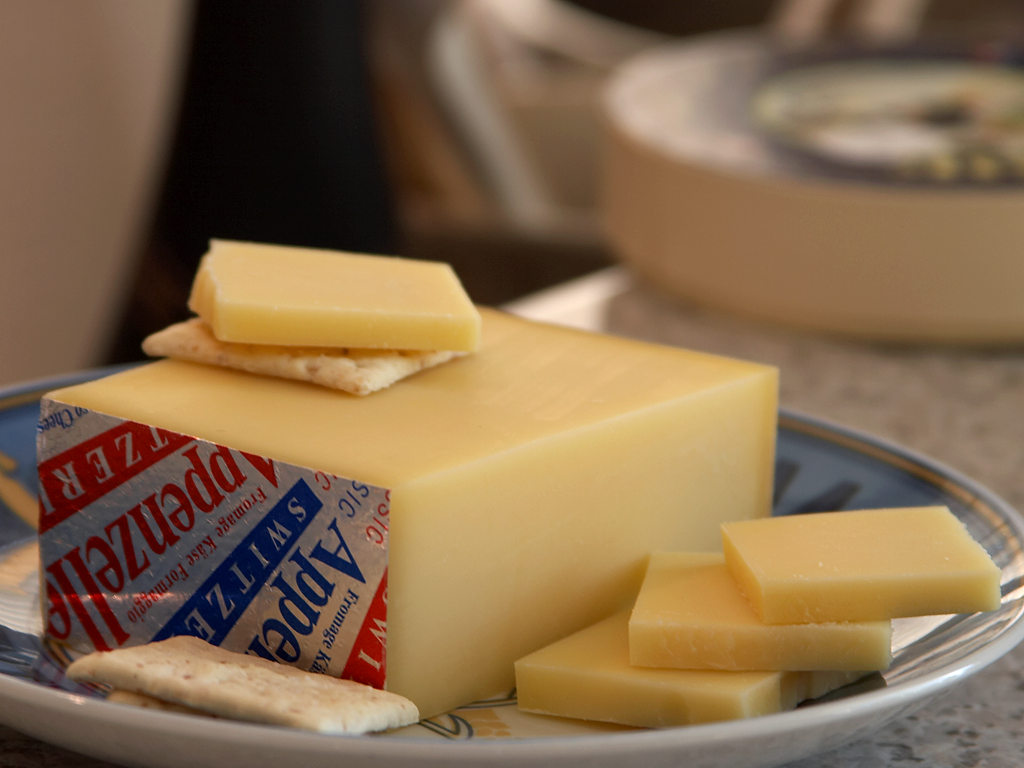
Ready made fondues
Unless you plan an expedition in Antartica, or on a desert island, try to avoid! I tried a few and they were not all that good (with a few notable exceptions). See Evaluation of ready made fondues.
Choosing a Gruyere.
Often, out of Switzerland you won't have a choice, but the secret is simply to taste it. Choose a Gruyere "mi-salé - half-salt) (mild has no taste). Refuse old Gruyeres (too full bodied) they are not good for fondue. You can estimate the age of a cheese by observing its crust. If it is thin and regular, it is rather young. the crust becomes thicker and irregular with age.
Ask to taste the Gruyeres available, and choose a cheese slightly salty, which leaves a good taste in the mouth, a little creamy taste without being overpowering. Experience will be acquired quickly.
Choosing a Vacherin Fribourgois
Here too tasting is the way to go. Do not accept a cheese with too pronounced a taste. The Vacherin Fribourgois brings the creamy taste to fondue, and you should really taste this in the cheese.
It could be in some countries that you have difficulty finding Vacherin Fribourgois. In this case, I use Fontina or Appenzeller (young).

Gruyere Gruyere
Gruyere
Gruyere Gruyere
Gruyere
Vacherin Fribourgeois Vacherin Fribourgeois
Vacherin Fribourgeois
Vacherin Fribourgeois Vacherin Fribourgeois
Vacherin Fribourgeois
Cheese for 5, Gruyere & Vacherin Fribourgeois Cheese for 5, Gruyere & Vacherin Fribourgeois
Cheese for 5, Gruyere & Vacherin Fribourgeois
Appenzeller Appenzeller
Appenzeller